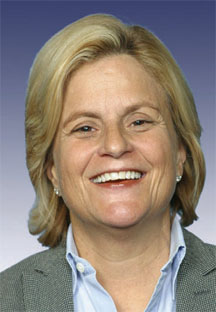For the past two years, the Obama administration has managed to keep its Latin American policy largely out of the headlines, focusing its energies on Iraq, Afghanistan and other world hot spots. But that’s about to change. There is a consensus in Washington’s foreign policy circles that the Congress that took office earlier this month after the GOP victory in the midterm election will put pressure on the administration to take a harder line on the authoritarian regimes of Venezuela, Bolivia, Nicaragua and Cuba.
Key congressional committees have changed hands, and are now led by Republican foreign policy hawks who have long criticized President Barack Obama for allegedly being too soft on Venezuela’s President Hugo Chávez and his allies in the region.
 In an interview last week, Rep Ileana Ros-Lehtinen of Miami, the new chairwoman of the House’s powerful Committee on Foreign Affairs, told me that there will be subcommittee hearings and investigations into issues such as Chávez’s suspected aid to Middle Eastern terrorist groups and his links to Iran’s secret nuclear weapons programme.
In an interview last week, Rep Ileana Ros-Lehtinen of Miami, the new chairwoman of the House’s powerful Committee on Foreign Affairs, told me that there will be subcommittee hearings and investigations into issues such as Chávez’s suspected aid to Middle Eastern terrorist groups and his links to Iran’s secret nuclear weapons programme.
“It will be good for congressional subcommittees to start talking about Chávez, about [Bolivian President Evo] Morales, about issues that have not been talked about,” she said. “We are going to have a discussion about all of these issues.”
Ros-Lehtinen, who has scheduled a trip to Brazil, Argentina, Colombia and Honduras in March, said that the House subcommittee on Western Hemisphere affairs is likely to hold hearings on whether to place Venezuela on the State Department’s list of terrorist countries.
The subcommittee’s new chairman, Rep Connie Mack of Fort Myers, supports the idea. Ros-Lehtinen suggested to me that she doesn’t, for practical reasons.
The House is also likely to hold hearings on whether to impose economic sanctions on Venezuela’s oil monopoly PDVSA and Venezuelan banks, she said.

Won’t these discussions be counterproductive, and give Chávez great ammunition to support his claims that he is a victim of the “US empire,” I asked her. “The United States must have principles. It’s very nice to think that one can be friends of the entire world, but if we do that, we don’t have principles,” she said. She added that Chávez and his allies are going to blame the United States for everything anyway, regardless of what Washington does.
Ros-Lehtinen will not be the only new powerful voice in Congress demanding a tougher line on Venezuela. The new Republican chairmen of the House’s Intelligence Committee and Judiciary Committee are also more likely to press for inquiries into Venezuela’s ties with Iran and terrorism, Republican foreign affairs analysts say.
“They will start asking questions, and they will make a difference,” says Roger Noriega, who was head of the State Department’s Latin American affairs during the George W Bush administration. “They will demand accountability from the administration, and that will bring about consequences.”
Obama supporters concede that the new Congress is likely to have an impact on the administration’s Latin America policy, but warn that it will be a negative one.
“Ileana Ros-Lehtinen has already said that she wants to cut the State Department budget and foreign assistance,” said Jeffrey Davidow, who served as head of the State Department’s Latin American affairs office during the Clinton administration. Davidow added that “we need the tools of diplomacy and foreign aid to maintain our position in this hemisphere.”
In addition, the new Republican congressional leaders’ “negative rhetoric” will hurt the US image in the region, which “could result in a weakening of the kind of support we need to pursue our interests,” Davidow said.
My opinion: I’m afraid that extreme rhetoric from Congress on Venezuela and its allies will play into Chávez’s hands. It will give the narcissist-Leninist leader ammunition to play the victim, and to blame Washington for his country’s economic disaster.
The good news is that Ros-Lehtinen is sounding more judicious – even more moderate – since her appointment to her new role, not only on Venezuela but also on foreign aid and other Latin American issues. In addition, the Democratic-led Senate is likely to stop any radical House policy initiatives.
Whatever happens, there will be a lot more noise about Latin America in Washington than over the past two years.
© The Miami Herald, 2011. Distributed by Knight Ridder/Tribune Media Services.









